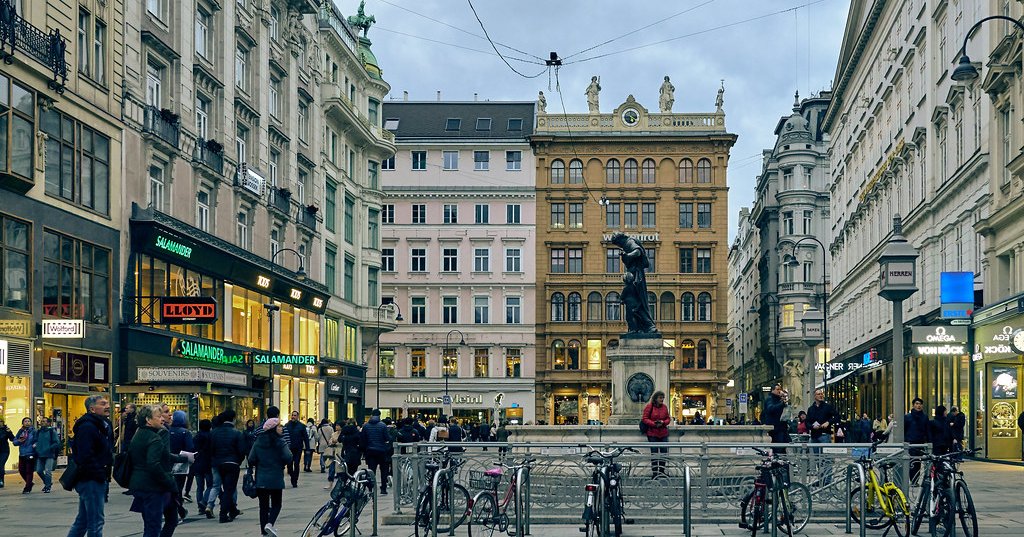Austrian capital is struggling. Manufacturing is in deep recession (anything below 50 in the graph below means contraction), as it is in Germany.
Austria’s real GDP per capita growth stagnated nationwide in 2011-2020 and was lower than the EU average (0.6%) in all regions. Labour productivity is stagnating or decreasing in most regions. That’s because productive investment is still shrinking, after falling 2.3% in 2023.
Austrian capital is being squeezed because, alongside falling labour productivity, there are rising wages for Austria’s organised workers, the fastest wage rise in Europe this year. Workers try to restore the losses in real incomes they have suffered from high inflation rates after COVID. Even though wages are set to rise by 8.5% this year, that still does not compensate for previous years’ high inflation. And although unemployment is still near lows, new jobs are mainly part-time without any permanent career prospects and pay poorly.
Behind falling productive investment and labour productivity is the fall in the profitability of Austrian capital, mirroring that in Germany. The rise in the early 2000s has given way to steep decline in the 2010s, accelerating since COVID.
What are the solutions offered by the parties to this economic stagnation? The FPO has mix of neo-liberal, pro market policies with some support for older Austrians, who generally vote for it, like raising state pensions rates. The FPO wants ‘more deregulation’ and lower taxes, including cutting corporation tax on small businesses from 23% to 10%; and ending ‘green’ measures by scrapping a tax on carbon emissions introduced in 2022. It advocates price controls during times of severe inflation on food, rent and energy as well as reducing sales tax on essentials. And it wants to maintain Russian energy imports.
The Conservative OVP wants to do pretty much the same things as the FPO, except it wants to keep to EU sanctions on Russia by ‘promoting renewable energy’. The Social Democrats want some new taxes on the wealthy to pay for tax cuts for the rest of Austrians and they would raise corporate tax and place a one-off levy on energy companies and banks; with a state company to invest in renewable energy to reduce dependence on Russian gas.
None of these policies offer any probability of raising investment rates or productivity, let alone increasing real incomes for most Austrians. So any coalition formed after this election, whether led by the FPO or the OVP, will change little.
Source link : http://www.bing.com/news/apiclick.aspx?ref=FexRss&aid=&tid=66f858a434b44bf1b96216246808cf18&url=https%3A%2F%2Fwww.cadtm.org%2FAustria-stuck-in-the-middle&c=528181584812153784&mkt=de-de
Author :
Publish date : 2024-09-28 12:06:00
Copyright for syndicated content belongs to the linked Source.
